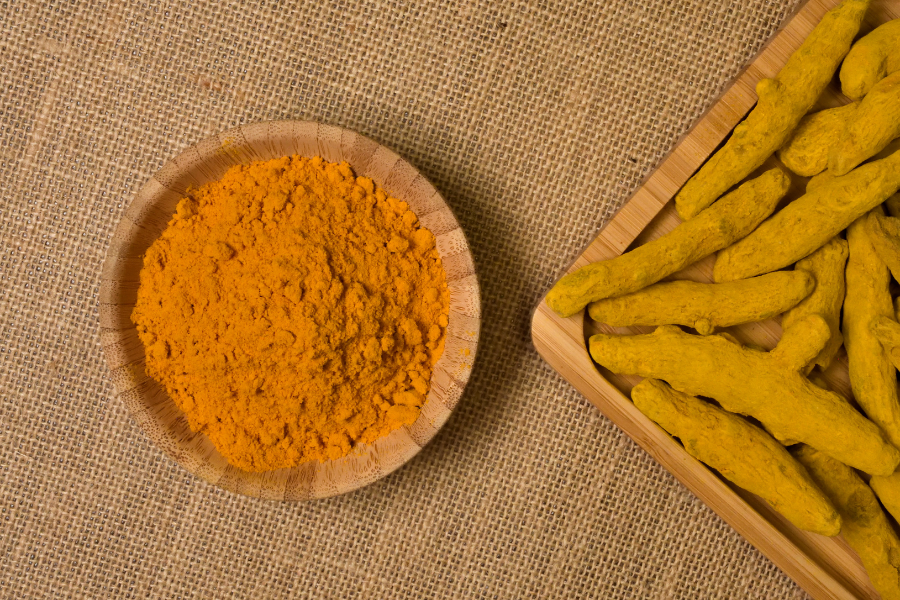Hey, have you noticed your four-legged friend itching, biting or losing fur non-stop? Well, welcome to the crazy club of dealing with dog skin allergies. It's a real bummer seeing your fury lil' buddy all fidgety—trust me, I've been there. And the annoying part, figuring out how to give them a break. Dog skin allergies can literally have you and your pup running in circles but hey, there’s a silver lining—antihistamines! Yes, they can bring the much-needed relief from all that itchiness.
Hold on! You don't have to rush to your medicine cabinet or get lost in the pet store's maze just yet. Let's first understand what antihistamines work for our canine friends, how exactly they work, and, most importantly, which ones could be your dog's skin's bestie.
So go ahead, snatch a treat (it's okay to be selfish and grab one for yourself too), get comfy, and let's dive into this allergy-free journey together.
What’s the Deal with Skin Allergies in Dogs?
First things first, what causes skin allergies in dogs? Skin allergies, also known as allergic dermatitis, are one of the most common reasons pet owners seek out vet care. They occur when your dog’s immune system overreacts to certain triggers—aka allergens.
The usual suspects? Well, there's the environment stuff like pesky pollen, dust mites, and even mold. Then you've got flea allergies. Can you believe just one tiny flea bite can start an allergy avalanche? Crazy! Not to mention food allergies. Chicken and beef can be the bad guys here. Lastly, certain products like shampoos or cleaning supplies can be sneaky contact allergens.
Now, when the immune system overreacts, it releases these naughty little chemicals known as histamines. These guys stir up some trouble, causing inflammation, redness, and itching, which means your poor pup can't stop scratching.
How Do Antihistamines Help?
Antihistamines are the unsung heroes in the battle against allergy symptoms. They work by blocking histamines, the chemicals causing your dog’s itchiness, sneezing, and even skin redness. Essentially, they put a stop to your dog’s body overreacting to allergens, leaving your fur baby feeling more comfortable. However, not all antihistamines are created equal, and some work better for dogs than others depending on their size, condition, and unique needs.
Fun fact (and by fun, I mean mildly interesting): While antihistamines like Benadryl are safe for dogs in proper doses, human medications often don’t work as well on our four-legged friends because their absorption and physiology are different. Another reason to proceed with care!
The 5 Best Antihistamines for Dogs with Skin Allergies
Here’s a breakdown of some of the most popular antihistamines that can help manage your dog's skin allergies. Remember, always consult your vet before giving your dog any medication—they’ll help you find the safest and most effective option for your pup!
1. Benadryl (Diphenhydramine)
Ah, good ol’ Benadryl—a staple in many households and often the go-to choice for mild allergic reactions in dogs. It's inexpensive and widely available, making it a popular choice among dog owners.
- Best for: Seasonal allergies and mild itchiness
- Dosage: Typically, 1 mg per pound of body weight, 2-3 times daily (check with your vet for exact dosing)
- Pros: Affordable, easy to find, often well-tolerated
- Cons: Can make your dog drowsy (which may be a pro if you have a very hyper pup)
2) Quercetin
Quercetin (also in our natural alternatives list below) is sometimes referred to as “nature’s Benadryl” because of its powerful anti-inflammatory and antihistamine properties. It’s a natural compound found in fruits and vegetables like apples and broccoli, and it can work wonders for dogs suffering from allergies. Not only does quercetin help calm down itching and sneezing, but it can also support overall immune health, making it a great holistic option.
SHOP QUERCETIN FOR DOGS NOW
- Best for: Dogs with seasonal or environmental allergies, itching, and inflammation
- Dosage: Typically 5-10 mg per pound of body weight daily (always consult your vet before starting)
- Pros: Natural, helps reduce inflammation, supports immune health
- Cons: Takes time to show effects and may not be as fast-acting as traditional medications
3. Zyrtec (Cetirizine)
Zyrtec is another over-the-counter option—but with fewer drowsy vibes. It’s great for dogs with skin-related symptoms and provides quick relief for itching.
- Best for: Skin rashes and chronic itching
- Dosage: 5–10 mg once daily for dogs under 60 lbs; 10 mg for larger dogs (consult your vet)
- Pros: Usually non-drowsy, long-lasting
- Cons: Slightly pricier than Benadryl, some dogs may experience mild side effects
4. Claritin (Loratadine)
If your dog has itchy skin but struggles with drowsiness on other antihistamines, Claritin could be the answer. It’s another allergy-relief superstar with minimal sedative effects.
- Best for: Environmental allergies and mild skin irritations
- Dosage: Typically 5–10 mg daily (again, chat with your vet)
- Pros: Non-drowsy, less frequent dosing
- Cons: Avoid formulas that include pseudoephedrine (it’s dangerous for dogs)
5. Atarax (Hydroxyzine)
Considered one of the “stronger” antihistamines, Atarax is available via prescription only and provides powerful relief for stubborn allergies and more severe cases.
- Best for: Persistent itching or severe allergic reactions
- Dosage: Prescribed by your vet based on weight and condition
- Pros: More effective for some dogs than OTC meds
- Cons: Requires a prescription, can cause sedation in some dogs
6. Apoquel (Not an Antihistamine, But Worth Mentioning!)
Okay, technically Apoquel isn’t an antihistamine—it’s a prescription medication that blocks the itch receptors caused by allergic reactions. However, it’s so effective for chronic skin allergies that we'd be doing you a disservice by leaving it out.
- Best for: Moderate to severe skin allergies and atopic dermatitis
- Dosage: Prescribed by your vet
- Pros: Offers fast relief (often within hours), reduces inflammation, well-tolerated by most dogs
- Cons: Pricey, available only via prescription
Things to Consider Before Giving Your Dog Antihistamines
Before you pop that antihistamine pill into your furry buddy, let's chat about a few things, shall we?
- Always Check-In With Your Vet First: Trust your vet. They'll whip up the best med-mix and plan tailored to your doggo's size, age, and health status.
- Look Out for Side Effects: Your pet might feel a bit drowsy, have a dry mouth, or in very unusual circumstances, some tummy trouble. Keep an eye out, folks!
- Human Antihistamines? Think Twice!: Our over-the-counter antihistamines might contain sneaky stuff like xylitol or decongestants that could harm our four-legged friends.
- Mixer Treatment Approach: Antihistamines work their magic best when combined with other treatments - think diet changes, flea protection, or even a special shampoo.
Natural Alternatives and Supporting Their Itchy Skin
What if the antihistamines aren't doing the trick completely? Or maybe you're eager to try some nature-inspired remedies? Take a look at these paw-some alternatives:
Omega-3 Supplements:
Your dog's coat will be shiny as ever with some fish oil or omega-3 supplements.
Quercetin:
Say hello to "nature's Benadryl"! Found naturally in fruits and veggies, it's fab for soothing your buddy's irritated skin. Just check with your vet before trying it out!
Anti-Inflammatory Diet
Did you know that serving up some anti-inflammatory munchies to your doggo can really boost their health? It's a game-changer, especially if your pup's been struggling with itchy skin or allergies.
Let’s talk ingredients! Get your paws on foods with salmon, sweet potatoes, blueberries, and spinach - they're chock-full of omega-3 fatty acids, antioxidants, and must-have vitamins. They're like the superheroes of the food world, battling inflammation and building up your pet's defense mechanism.
Steer clear of the bad guys like wheat, corn, and soy - they’re notorious allergens. You might want to step up your game and switch to a superior, grain-free food or whip up home-cooked meals (if your vet gives you the thumbs up, of course!).
Keeping your mate's diet clean and brimming with nutrients can dramatically improve their skin and coat health – and I bet they'll be wagging their tail in thanks!
Special Shampoos for your Special Friend:
Try some medicated or hypoallergenic shampoos to ease their itchy skin.
Allergy Testing:
If your dog still can't stop scratching, it might be time for an allergy test to spot those bothersome triggers.
Clean, Clean, Clean:
A clean living space means fewer allergens like dust and pollen to annoy your doggo.
Final Thoughts: A Scratch-Free Future Awaits!
OK, here's the lowdown! No pup should have to scratch their way through life, right? It sucks seeing your four-legged buddy all itchy and miserable. But thank goodness for antihistamines! Whether it's a little dab of Benadryl for the sneezy season or a dose of Apoquel for tougher times, we've got a magic potion for every pooch out there.
Now, don't forget to chat with your vet before going all in. You know the drill, a healthy Fido is a happy Fido. Got more queries about beating those pesky allergies? Don't be shy! Chuck them in the comments below or share the love (and this post) with your dog-lover mates. You might just be the hero another itchy dog needs. And now, off you go, give your patient furball an extra cuddle. They've earned it!
FAQ's
Q: "Can I just give my pooch any antihistamine?"
A: Well, hang on a sec! Not all antihistamines are a good fit for all dogs. Always chat with your vet before starting any new meds to make sure they're perfect for your doggo's size, breed, and health.
Q: "Alright, and how fast do these antihistamines kick in?"
A: You should start to see Fido getting relief within 1 to 3 hours. But, for those stubborn, long-term issues, it might take a few days of consistent use to really see a big difference.
Q: "Any natural alternatives? I like the sound of that..."
A: You betcha! Stuff like quercetin, bromelain, colostrum (or all of the above in our dog allergy formula), omega-3 supplements, hypoallergenic diets, and soothing oatmeal baths could help your dog's mild allergies without needing meds. Just make sure to have a chat with your vet before you go down this path!
Q: "Can these antihistamines totally cure my dog's allergies?"
A: I wish! But unfortunately, antihistamines are more about managing those pesky symptoms like itching and swelling. The real key to long-term relief is figuring out what's causing the allergies and staying clear of it.
Q: "What if my dog has a bad reaction to the antihistamines?"
A: If something doesn't seem right, stop the medication right away and ring up your vet. Extreme sleepiness, vomiting, or being overly agitated are signs you need to get help fast.
And remember, we're always here if you've got more questions! After all, we're all about helping you and your fur baby!
References
1) Outerbridge CA, Jordan TJM. Current Knowledge on Canine Atopic Dermatitis: Pathogenesis and Treatment. Adv Small Anim Care. 2021 Nov;2:101-115. doi: 10.1016/j.yasa.2021.07.004. Epub 2021 Sep 29. PMID: 35721364; PMCID: PMC9204668.




